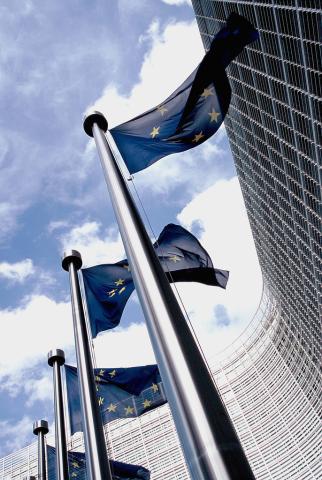Enforcement of the Digital Services Act: One Year On
Enforcement of the Digital Services Act: One Year On

A year after the Digital Services Act (DSA) was implemented, enforcement efforts are fully underway. The European Commission has been closely monitoring compliance, particularly focusing on major digital platforms like Meta and TikTok. According to data collected by Euronews, these platforms have been the most frequently scrutinized to ensure their policies align with the DSA's standards.
One notable development occurred on July 12, when the Commission advanced an investigation into X, finding preliminary evidence of DSA violations. Similar probes are ongoing for Meta, Aliexpress, and TikTok, with potential findings expected later this year. Beyond these investigations, the Commission continues to designate new platforms as Very Large Online Platforms (VLOPs) once they reach 45 million monthly users within the EU. The most recent addition is the adult content platform XNXX, making it the 25th VLOP identified.
As we approach the one-year mark since the first group of VLOPs had to comply with the DSA, and six months since the rules applied to all online platforms, we examine the current state of enforcement.
Sectors Most Affected
The DSA aims to empower and protect users online by requiring platforms to assess and mitigate systemic risks, provide robust content moderation tools, publish transparency reports, and maintain ad repositories. Telegram, founded in 2013 by Russian-born Pavel Durov and currently under the jurisdiction of Belgium's national digital services coordinator, is expected to be designated as a VLOP next, with around 41 million EU users.
Ongoing Investigations
The EU Commission has four formal investigations pending under the DSA: X, Meta, Aliexpress, and TikTok. The investigation into X has reached its first stage, focusing on content moderation and disinformation. For Meta, the probes address issues such as deceptive advertisements, the visibility of political content, and a lack of real-time third-party checks, especially around the EU elections. A second investigation examines Meta’s protection of minors.
Aliexpress is under scrutiny for its handling of illegal content, while TikTok faces questions about its platform design, particularly concerning its addictive features and the TikTok Lite app, which incentivizes children's use through rewards.
The Commission has also issued numerous information requests to various companies. Meta's platforms, Facebook and Instagram, received the most questions. In contrast, Wikipedia and newly designated XNXX have not received any inquiries yet. These information requests can lead to formal proceedings, with potential fines reaching up to 6% of a company’s global turnover for non-compliance.
Guidelines and Coordination
The Commission, alongside national digital services coordinators in member states, is developing guidelines under the DSA framework. The first set focused on the EU elections, with future guidelines expected to address the protection of minors, likely to be released in the second quarter of next year.
However, some discrepancies in oversight remain. Despite a mandate for all 27 EU member states to appoint national coordinators for DSA implementation, countries like Poland and Slovakia have not yet established these regulators. The Commission initiated infringement procedures against these states in April. National regulators play a crucial role in assisting the Commission by collecting evidence on DSA implementation, working under the EU oversight board to harmonize national approaches and ensure consistent user rights across the EU.
Article source: https://www.euronews.com/next/2024/07/19/how-has-the-digital-services-act-been-enforced-one-year-on
Photo attribution: Xavier Häpe, European flag outside the Commission, CC BY 2.0

Το comment on the article or to read all articles, please sign in or sign up